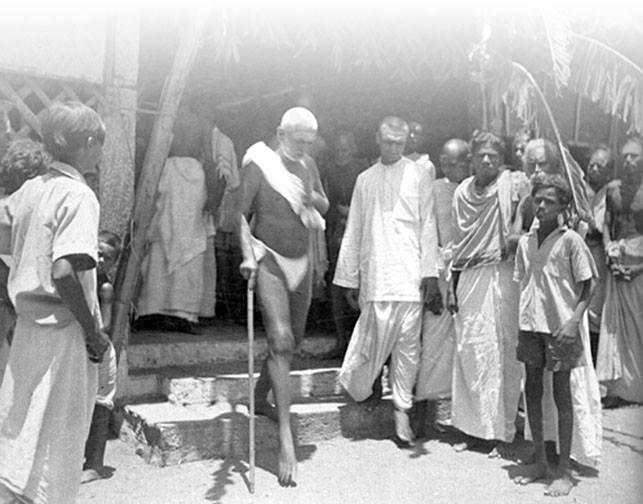634-Swami Krishnananda
---------------------------------------------------------------------------------------------------------------------------------
---------------------------------------------------------------------------------------------------------------------------------------
Sunday, November 7, 2021. 7:00.AM.
India's Ancient Culture : Swami Krishnananda
---------------------------------------------------------------------------------------------------------------------------------------
1. The Definition of Culture
India has always been considered as the repository of one of the earliest of cultures. Cultures are there in every country, but Indian culture is said to be one of the most ancient, historically speaking. So there is some point in trying to go a little deep into the ancient circumstance that gave rise to the kind of culture which we call Indian culture.
2. The Evolution of Culture
To recapitulate, I mentioned that a qualified, educated person may not be up to the mark in culture, because the human individual encounters the world as an object of perception and activity. A kind of irreconcilability is seen between the subjective side and the objective side. The world does not always behave as we would like it to behave, and we do not always behave in the manner in which the world is behaving. Nature and human society, which are the objective side of our experience, do not always seem to be going hand in hand with our whims and fancies, our requirements, our needs or our outlook of life. The world has its own way, as we have been seeing, and we do not feel competent enough to put ourselves in a state of harmony with the ways of the working of nature and of human society. This is a kind of conflict that we have been noticing.
3. The Vedas – the Foundation of Indian Culture
The culture of India can be traced back to the Vedas, especially the Rigveda Samhita. Generally, the Veda is regarded as a religious scripture, and practically every so-called scripture in the world is considered as the basis of a particular religion. Therefore, an idea or an opinion has been formed by people generally that the culture of India is principally a religious culture, and inasmuch as religion is connected with the existence of God, this thought was further developed into the consequence thereof that Indian culture is not connected with this world so much as with the other world. This is a wrong notion, a wholly mistaken view of the content of the Veda Samhita.
4. The Fourfold Aim of Life and How to Achieve It
We bestowed sufficient thought on the foundations of Indian culture, which are the Vedas. We observed that the Vedas are not merely a scripture of religion in the sense of an aspiration for a God above the world, and we had occasion to go into the different aspects of the meaning of the Veda Samhitas. They are inclusive of at least five aspects of life. It is religion, of course, because the mantras of the Vedas are addressed to gods, or divinities, above the physical world. But the Veda mantras are also connected with this world, not merely with the other world. They are not merely connected with adhidaiva, or divinities in heaven, but are also connected with adhibhuta, the actual physical world in which we live. The mantras of the Vedas are also connected with the soul of the human being. They are adhyatma and, in that sense, they are also psychology and spirituality. They are also adhiyajna because they give us information about the method of conducting ourselves in our actual performance and action in the world. They are also adhidharma because they tell us the way in which we have to conduct ourselves in relation to other people in the world, in relation to the physical world outside us, in relation to the Creator Himself, in relation to our own selves—in relation to everything, for the matter of that. This is called dharma or law, and it is also laid down in the Vedas Samhitas.
5. India's Concept of Totality
The Vedas and the Upanishads cater to the intuitional and the direct apprehension faculties of the human individual. Intuition is the faculty which was the cause of the coming of these great scriptures, the Vedas and the Upanishads, but they can also be apprehended directly. We cannot read the Vedas and the Upanishads like a school textbook whose meaning is clear on a proper linguistic analysis or from the point of view of grammar. The Vedas and the Upanishads are not to be studied from the point of view of etymology, grammar or linguistics.
****
======================================================================






Comments
Post a Comment